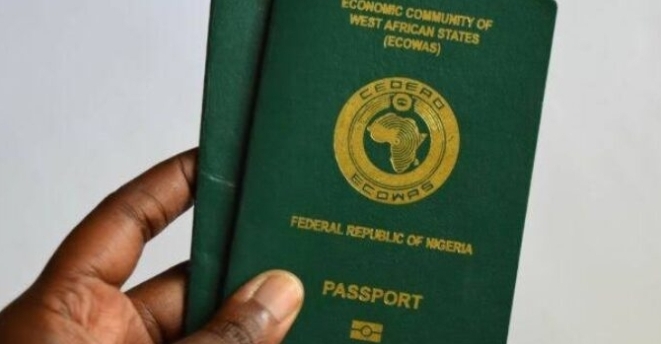The federal government has announced that the passport application processing time by the Nigeria Immigration Service (NIS) will now take six weeks.
This announcement was made by the Interior minister, Rauf Aregbesola at a meeting with Muhammed Babandede, comptroller-general of NIS; passport officers, as well as attaches in Nigerian missions abroad, held at the immigration headquarters in Abuja, on Thursday.
According to Aregbesola, this is to ensure a seamless, transparent operation, as well as “accord human dignity to applicants and fulfil citizenship integrity in line with the mandate of the ministry”.
According to a statement by Towoju Raphael, senior information officer at the ministry of interior, Aregbesola said it has become imperative to review the ministry’s operations and rejig its system in order to offer excellent services to clients.
“A timeline will be fixed for every application i.e., a collection date. This will be six weeks, comparable to what obtains in other countries,” Aregbesola said.
“This is to allow for enough time to investigate and validate personal information supplied by the applicants.
“What we are driving at is the peace of mind that comes from the assurance of certainty. If there are circumstances that will make the date change, it will be communicated to the applicant one week before the collection date.
“Applicants will have no basis for further communication with officers, other than to complete their application process and leave the venue. The date for the collection of their passports or any challenge to the application will be communicated to them. The technology for the efficient running of this system has been acquired and will be deployed.”
The minister also added that the NIS will publish a list of the backlog of applications that are ready, which have not been collected by the owners.
“They will be required to go to the state commands to collect them,” he added.
Aregbesola also said efforts are on to embed security operatives both “seen and unseen” in all passport offices.
“We have had several challenges in the past, including shortage of booklets, touting, racketeering, inflating the cost, passports being issued to ineligible persons, among others,” he said.
“They will wear body cameras. They will detect and report any form of solicitations, inflation, improper communications, extortion, diversion, hoarding and other corrupt practices. Those caught will be dealt with according to the law.”
The minister said an ombudsman will also be created for members of the public to receive complaints and reports on officers trying to deviate from prescribed guidelines and subversion of the process.
“Therefore, I am declaring a zero-tolerance stance to all forms of touting. No applicant will be made to pay any illegitimate fees,” he said.
